Accelerating Gender Equality through adoption of the Regional Gender Equality Profile for East and Southern Africa
Date:
UN Women East and Southern Africa Regional Office launched the Regional Gender Equality Profile, an analysis showcasing the landscape of gender equality in East and Southern Africa.
The Regional Gender Equality Profile is a representation of the East and Southern Africa Region, giving a projection of more than twenty critical areas addressing nuances of African women’s lives in subject areas including laws, rights, culture, opportunities and barriers. It also examines pressing gender issues such as climate change, land, peace and security, unpaid care work and childcare. The report provides a sense of direction and strategic recommendation with solutions to the challenges presenting on gender equality. In short, it provides a blueprint with timely and proven initiatives adopted in the region.
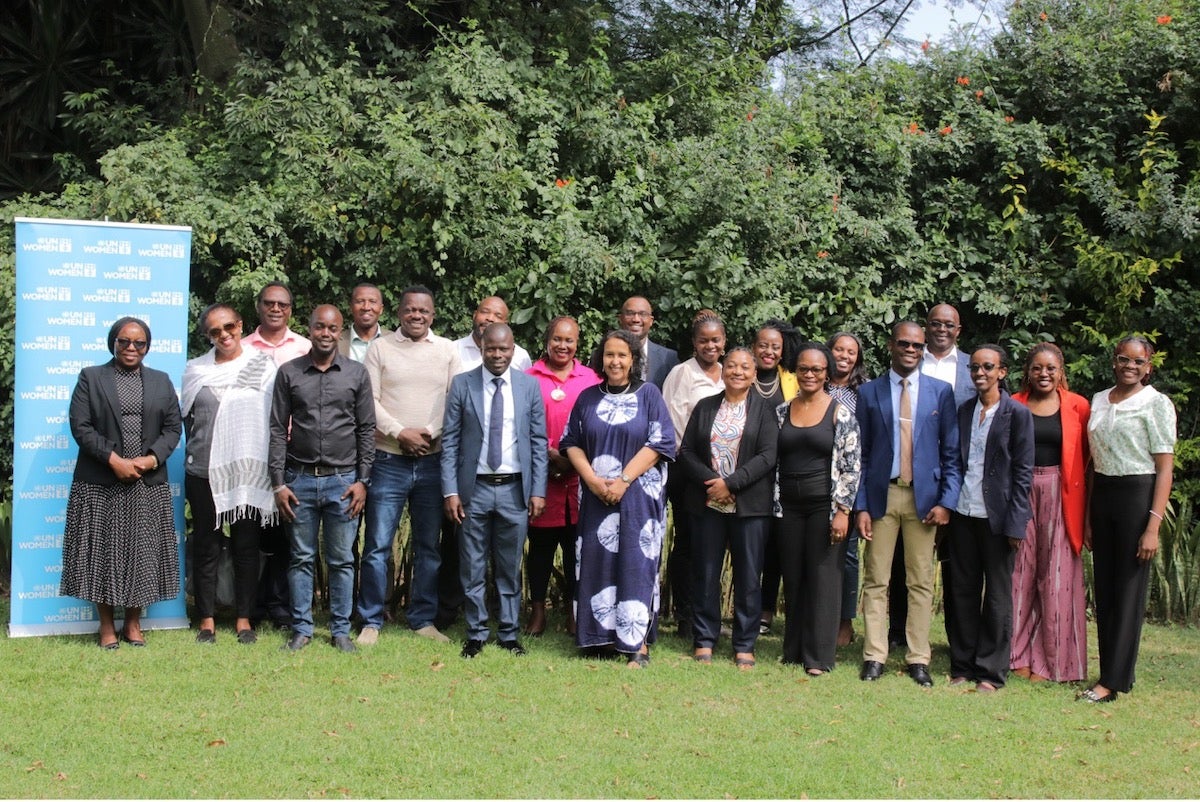
The event hosted a group of experts comprising of the regional focal points that form a Community of Practice leading the work of Country Gender Equality Profiles in 13 countries in East and Southern Africa and other stakeholders who included UN agencies, the civil society, development partners, media among others. Speaking at the hybrid launch, the Deputy Regional Director, Hodan Addou opened the event with a powerful message congratulating the country gender profile focal points for the commendable work on collaboratively producing the report serving as a tool for policy advocacy and programming for the region.
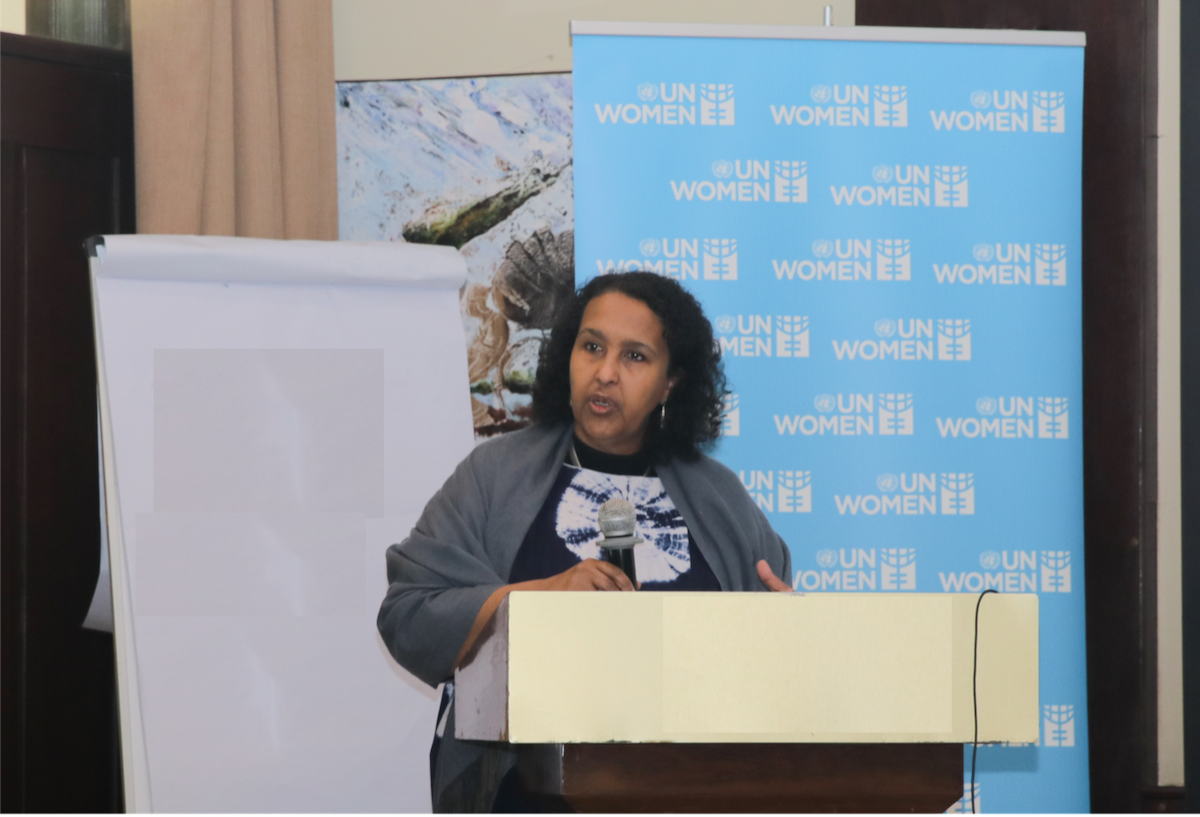
“As we work towards gender equality and the empowerment of women and girls, one relevant question is what a Gender Equality Profile is and what it does to the region as a corporate priority. A Country Gender Equality Profile is not just any report, it is a strategic, in-depth document that facilitates detailed country level analysis of the status of women and men, boys and girls at country level. International, regional and national commitments to gender equality and the empowerment of women drive its development. I acknowledge that we value the analysis especially on how they inform the common country analysis and how they are used to inform the development of the UN Sustainable Development Cooperation Framework and other policy and programmatic processes at country level.” Said Hodan Addou.
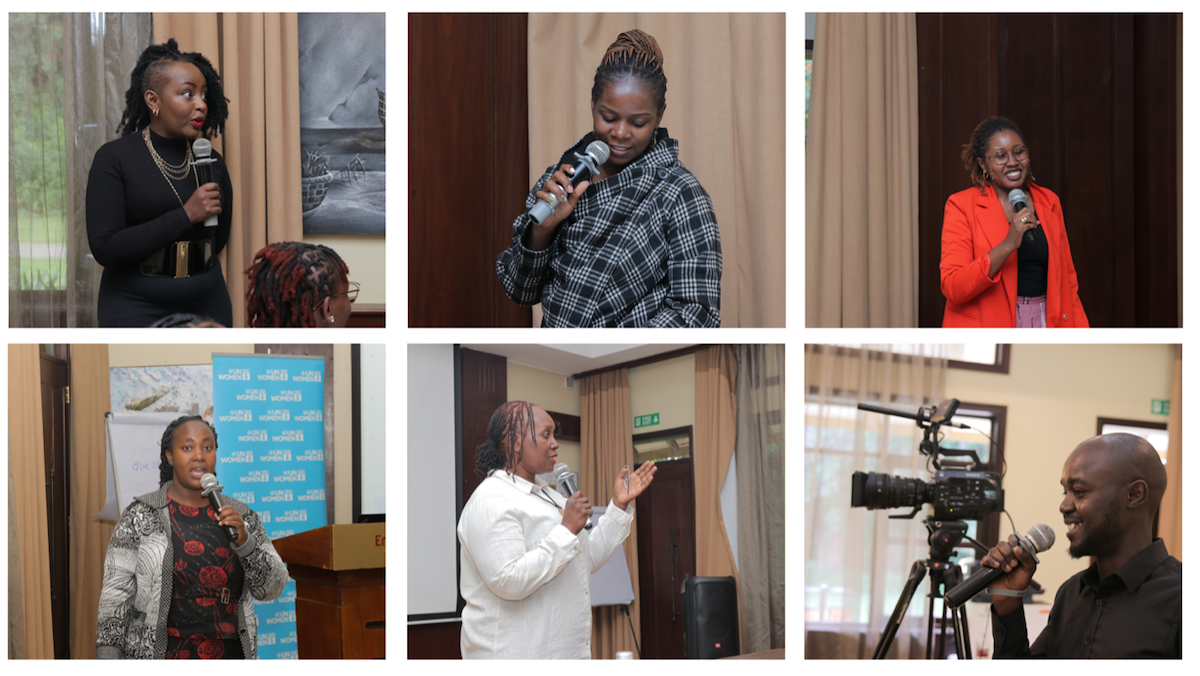
As part of the launch, the region incorporated a 5-day workshop whose purpose was to create synergies on the development, use and uptake of country gender profiles and assessing gender situations while highlighting key lessons in respective countries. Of importance, was the need to share best practices and picking out insights on issues prominent in the countries. With access to the invaluable information that is useful for national, regional and international stakeholders, the region’s focal points worked collectively on a joint dissemination plan that will see its stakeholders across the region benefit from maximized use of the country gender profiles and the regional profile.
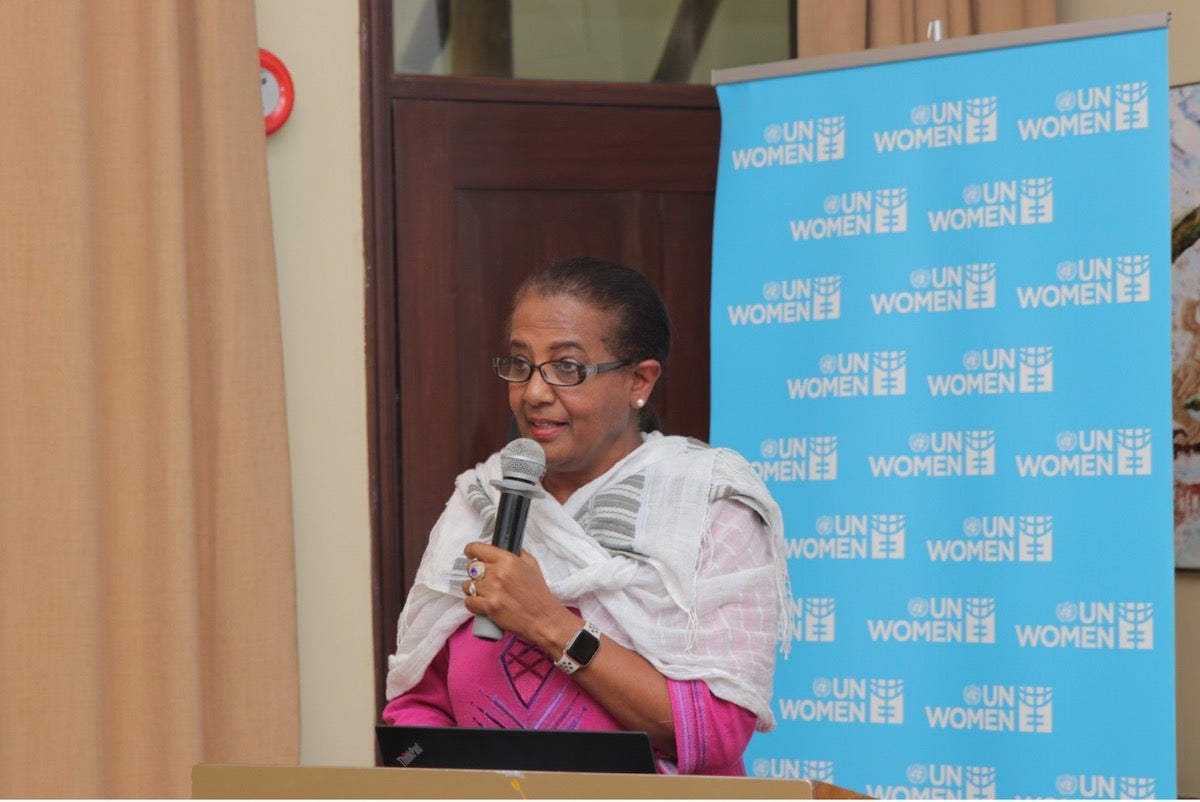
“For the last few days, we have had deep discussions, exchanged fresh ideas, and looked at the triumphs and difficulties in our individual countries and the region. These interactions have not only deepened our grasp but also reinforced why co-operation is needed among stakeholders in moving forward the course for gender equality. This platform has enabled us develop perspectives and networks that could be used in the future to enhance peer learning of our work on gender profiles. It is important that you, given your position involved in gender equality profile development and use, are instrumental in spearheading the implementation of the ideas that arise from these discussions into practicable strategies affecting you as a country office directly.” Said Kebedech Ambaye, the Strategic Planning and Coordination Specialist for UN Women East and Southern Africa during the launch.
The Regional Gender Equality Profile serves to assess our status and strategize better ways to accelerate progress for a more improved process for the development and use of the country gender profiles.
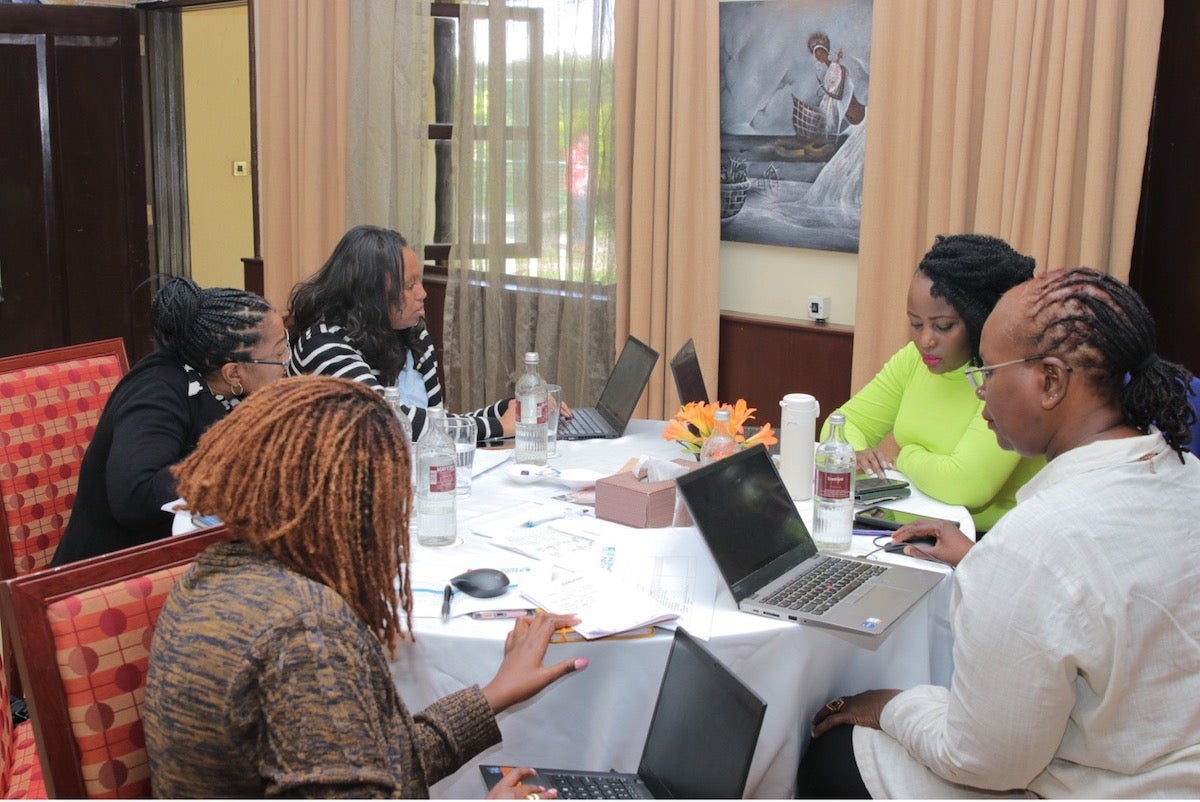
The report resoundingly responds to the call of accelerating progress towards gender equality. The stakeholders can use the report as a key knowledge product and guidance tool for regional level policies for advocacy and programming. It has been designed to serve varying audiences with its comprehensive content to meet governments, donors, UN agencies, international and national nonprofits, women’s rights activists and private sector partners needs that include fact finding to shape and promote initiatives.
The report also highlights the imperative and urgent need to have men become gender equality champions working towards violence free inclusive societies. Part of the segment articulates masculinity, shedding light on how toxic masculinity models not only harm women and girls, but majority of men and boys are harmed too. It emphasizes why gender equality is critical and matters to both women and men and requires both to join efforts to realize the goal.
The Regional Gender Equality Profile for East and Southern Africa is a game changer for country and regional planning for gender related initiatives
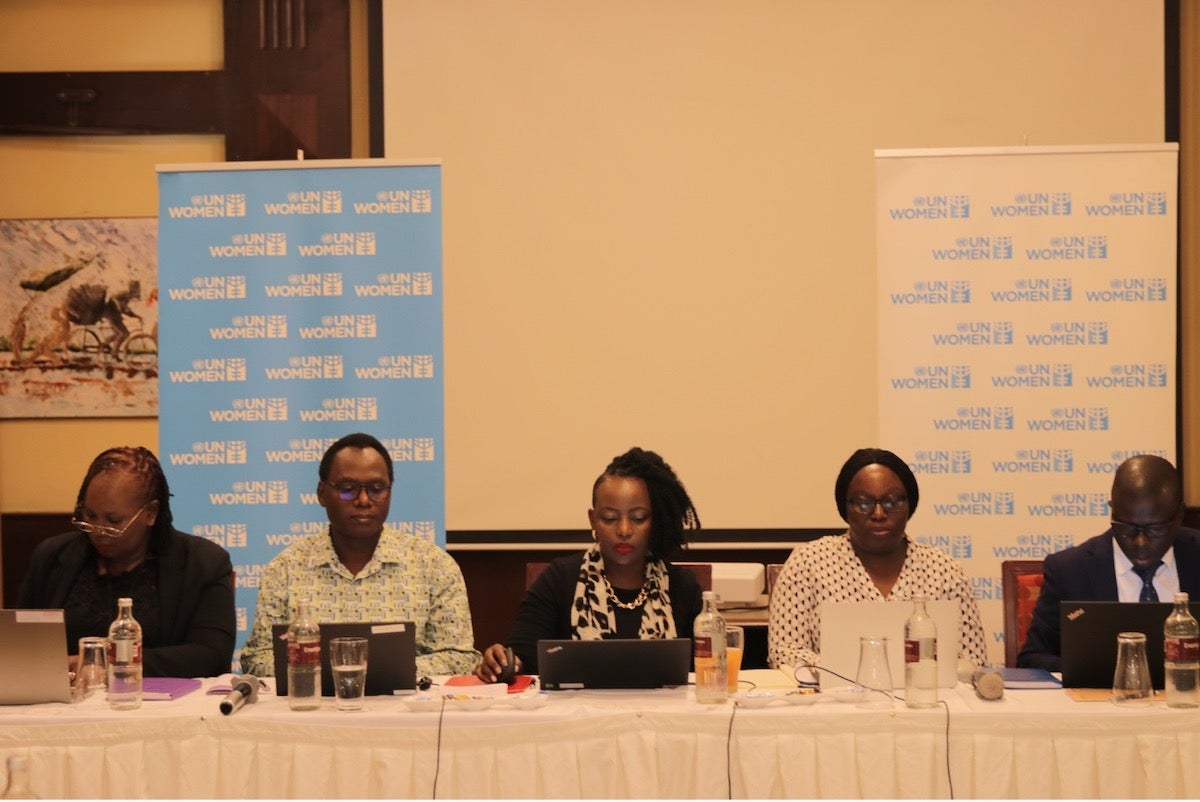
To accelerate the realization of gender equality, it is important to invest in tools such as the Regional Gender Equality Profile as a guide to good practices, shows process of sharing successful stories from represented countries, showcases enablers and accelerators of achieving gender equality, provides adequate knowledge on how to engage men and women, and finally, providing material on ending violence in all its forms.